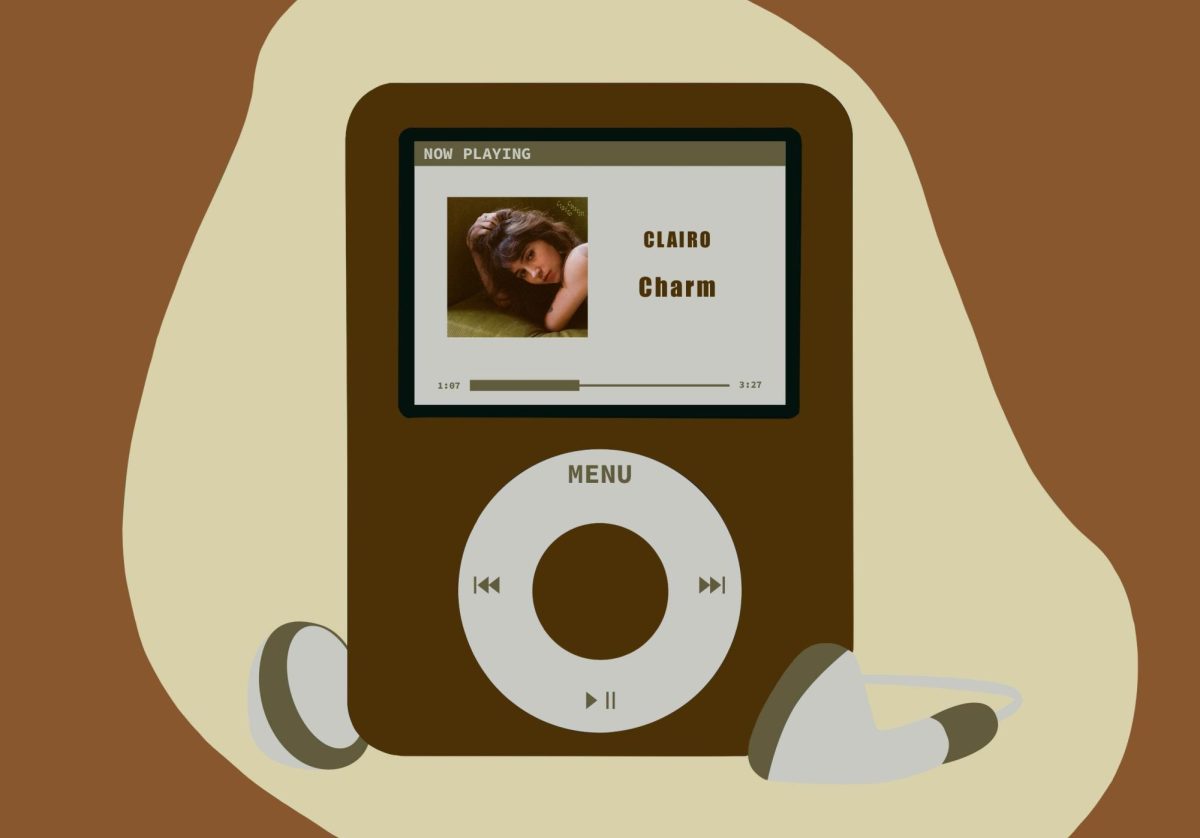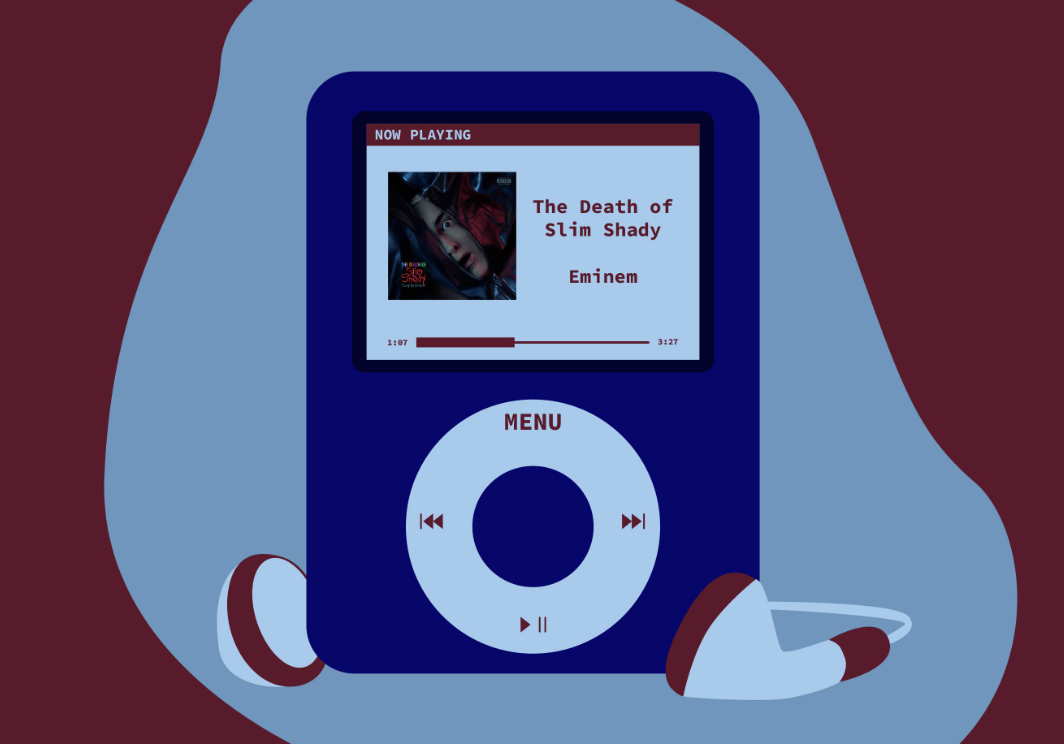In a music scene as thriving and dense as the Twin CitiesâÄô, getting noticed has never been easy. But even local fame doesnâÄôt necessarily promise fortune. ThereâÄôs nothing typical about a musicianâÄôs daily grind, and despite their celebrity statuses, some of MinneapolisâÄô most revered artists find themselves singing their own versions of the workingmanâÄôs blues.
Sean McPherson of Heiruspecs & Toki Wright
Sean McPherson had only been at the job for a week.
It was the summer of 2005 and his band, Heiruspecs, just landed a supporting spot on an upcoming tour with rapper Ja Rule. McPherson needed the work, but the gig was an opportunity he couldnâÄôt turn down.
Fortunately his employers, Creative Care Resources, understood the situation. They told him theyâÄôd find someone to pick up his shifts and secured his job, promising him hours after he returned.
McPherson has played bass in Heiruspecs for more than 10 years. But despite being a founding member of one of MinneapolisâÄô premiere hip-hop acts, financial security has almost always required going the extra mile. Over the years, heâÄôs bounced from one job to another. Sometimes it meant putting up flyers or delivering issues for City Pages. Other times he found himself working the door at places like the 400 Bar and the Turf Club.
There was a brief period where McPherson was able to live off income from Heiruspecs revenue, but by 2005 McPherson found himself in need of a job that could handle his whirlwind schedule.
After learning about the job from bandmate Josh Peterson, McPherson took a position as a seasonal employee for a group home organization called Creative Care Resources. Working in surrounding suburban counties, McPherson assisted disabled clients with everyday tasks. He taught them how to cook, helped them with shopping and taking baths. It was stressful work but it felt rewarding. And he was able to do it whenever he wanted.
âÄúWhen I was home I would work overtime, then I would go on tour and work no time at all,âÄù McPherson said.
McPherson eventually took up another job at Genesis II -âÄî a nonprofit family services agency where he monitored parents and children who were required to undergo supervised visits.
One of his former co-workers, Emily Glasgow, is the current program coordinator for Genesis II in the supervising parenting program and described McPherson as flexible and easygoing in spite of the uneasy circumstances.
âÄúItâÄôs not really an exciting situation for anyone to be in, and he made the families feel at ease,âÄù Glasgow said.
But shortly after graduating in 2007, McPherson knew his skill set was better suited for a job in music. However, he didnâÄôt want to just play music. He wanted to teach it too.
âÄúI really enjoyed the group home stuff, but I didnâÄôt want to advance in it,âÄù McPherson said. âÄúSo I said âÄòIâÄôm going to go to some meetings and try to get a more educational component for my musical route.âÄôâÄù
With a little persistence and a âÄúpestering personalityâÄù McPherson found the job he wanted at McNally Smith College of Music. Today he teaches a few theory classes, runs a summer program and helped develop the schoolâÄôs hip-hop department. The department is the United StatesâÄô first accredited hip-hop diploma program and is headed by local rap cohort Toki Wright.
âÄú[Sean] has had to wear multiple hats before,âÄù Wright said. âÄúHe is also a well-educated person that has been brought up around college life. HeâÄôs able to get students to really open up and be honest and truthful about what theyâÄôre learning and keep them interested.âÄù
Wright, a local emcee, has been performing his own balancing act for years. But Wright, who is a relatively new addition to the Rhymesayers family, didnâÄôt originally become a city celebrity by penning rhymes. Since graduating from the University of Minnesota in 2000, he has helped foster various organizations as an activist and community leader for Twin Cities youth. Some time after graduation, he ran a youth council for former Minneapolis Mayor Sharon Sayles Belton. And in 2004 Wright joined the then-burgeoning Yo! The Movement âÄî a now inactive youth nonprofit focused on community organizing through the performing arts. With an emphasis on hip-hop, Yo! hosted rap, beat boxing and break boxing competitions as well as training workshops for young people.
âÄúHe was really good at finding youths, who may or may not have been troubled, that had something valuable to offer and something that needed to be cultivated,âÄù said rapper Franz Diego, one of WrightâÄôs former employees.
Wright and Diego worked closely together and formed a brotherly bond through their community work. Diego, who now works at a St. JosephâÄôs Home for Children, said his relationship with Wright influenced him to stay involved even after Yo! became less active.
While in more recent years his community work has taken a back seat to his rap career, WrightâÄôs position at McNally allows him to work with young people on a daily basis. In addition to teaching, he also lectures regularly, visiting charter schools and speaking on a wide range of issues that include hip-hop, social justice, race and gender relations. Wright lives comfortably, but at the end of the day, heâÄôs not really doing it just so he can make rent. ItâÄôs a real passion. And itâÄôs one thatâÄôs so central to his identity you almost forget that heâÄôs a rapper when he talks about it.
âÄúThereâÄôs something in me that always wants to be involved in my community somehow,âÄù Wright said. âÄúItâÄôs part of my make up.âÄù
Dessa
Minneapolis songstress Dessa is the lone female member in Twin CitiesâÄô rap collective Doomtree, a highly revered hip-hop local, a published author and an accomplished spoken word performer. But before becoming a scene staple, DessaâÄôs professional career as a writer started at an unlikely place.
It was 2003 and she was nearing graduation. Dessa needed a way to support herself after college and considered trying to be a singer. But she didnâÄôt know much about it or where to start. With a little help from her dad, she landed an interview for a job as a technical writer with a local firm. After passing a writing exam she was offered the job to work on a trial basis, helping write device manuals for medical equipment manufacturers like Medtronic and St. Jude Medical Inc.
She spent most of her days talking with physicians and cardiologists as she helped author booklets for newly developed pacemakers and various medical devices. It was a job she would keep while she went on to pursue a music career, working hours that ranged anywhere from 20 to 50 a week depending on her schedule. While the work seems like a far cry from the poetic musings sheâÄôs lauded for, she admits some of the experiences and subject matter served as inspiration for her songwriting.
âÄúI used to occasionally meet cardiologists in a building called Cardiac Rhythm Management âĦ that seemed so close to being a rapper, it seemed like it would make for great an album title,âÄù Dessa said, laughing. âÄúHearts and anatomy were on my mind. I have written a few songs that reference them.
âÄúâÄòMineshaft IIâÄô even talks about the four chambers of a human heart.âÄù
Dessa took other jobs along the way, working as a waitress at Chino Latino for a year. But as her music career began to take off, she was approached about a teaching position by McNally SmithâÄôs Chris Cunningham who, at the time, was staffed at MinneapolisâÄô Institute of Production and Recording.
It was there that she discovered her love for working with students. She taught her own course âÄúFor Love or Money,âÄù educating students on useful techniques for improving and promoting their creative work.
âÄúShe had experience as an independent artist, as a performer, as a professional in building up the type of entrepreneurial career that our students are looking at as they graduate,âÄù said IPR director Brian Jacoby. âÄúShe was an example, and a good example at that.âÄù
Her reputation as an active and high-profile local artist also played a factor in engaging the students who were typically more receptive to artists who were respected figures of the Twin Cities music scene.
Cunningham, who now heads the composition department at McNally, was so impressed by DessaâÄôs performance that he had her transfer over to McNally shortly afterward.
While her touring schedule keeps her from teaching regularly anymore, Dessa is currently McNallyâÄôs Artist in Residence and visits the school four times a year to lecture. ItâÄôs good side income when sheâÄôs not playing shows or selling CDs, but according to Dessa, having a low overhead is what really makes things work.
âÄúI donâÄôt have a mortgage, I donâÄôt pay a car payment and I donâÄôt have any student loans, so I definitely make enough to live. I live uncomfortably, inexpensively but happily,âÄù Dessa said. âÄúIf itâÄôs choosing between having a vibrant life in music or having a stable life, IâÄôd definitely choose having a vibrant life.âÄù
Ali Jaafar of Hollow Boys
ThereâÄôs no such thing as a typical day for Ali Jaafar.
As the frontman for local goth-pop quartet Hollow Boys and bassist for Thousands and Thousands, Jaafar is one of MinneapolisâÄô more obscure, albeit talented, creative minds. And heâÄôs a laborious musician too, sometimes working nonstop for days to complete a record. But despite JaafarâÄôs high output, art doesnâÄôt really pay the bills.
Jaafar, who graduated from the University in 2009 with a degree in child psychology, works part time as a personal care assistant, helping and monitoring adolescent children who suffer from DownâÄôs syndrome. The hours are typically light, some weeks as few as 15, but others demand as much as 30. The job is a departure from his rock âÄônâÄô roll nightlife, but itâÄôs one heâÄôs qualified for. And he likes it too.
âÄúIn a lot of ways it is a free-form creative job. You have to know the person youâÄôre working with, and thatâÄôs why itâÄôs good to have knowledge of child psych, so you know how to do that,âÄù Jaafar said.
When the parents arenâÄôt available, Jaafar acts as the caretaker, helping kids with everyday tasks like homework and assisting them in fostering independent living skills they canâÄôt develop on their own. After school, heâÄôll meet them at the bus stop and stay with them the rest of the day until a parent or guardian returns home.
Hourly, the pay is decent, but Jaafar said the hours are so irregular that it makes it hard to keep track.
Either way, itâÄôs not JaafarâÄôs only gig. He also works as a freelance audio engineer, mixing and mastering music and film audio for local bands and companies.
Minneapolis songwriter Andrew Jansen, who plays in local act Crimes, has worked with Jaafar on several occasions and has always appreciated his directness and clarity.
âÄúHeâÄôs super just on and heâÄôs very communicative. HeâÄôs the type of person where youâÄôll get together for an hour to go through it and then youâÄôll get together another week and just nail it,âÄù Jansen said.
A lot of the bands Jaafar does audio work for are his friends, gigs he usually just does for free. ItâÄôs clients like the Sierra Club or independent filmmakers that tend to be the more lucrative ventures.
âÄúThose are the good paying jobs because doing records for bands sucks,âÄù Jaafar said. âÄúBecause even if you have an hourly rate and even if you draw up a plan, it doesnâÄôt work like that. Bands donâÄôt know what theyâÄôre doing, and they donâÄôt know what they want, and you get into it and youâÄôre like, âÄòThis is a mess.âÄôâÄù
Jaafar also recently started a job at uptownâÄôs Twin Town guitars, but he still enjoys the PCA work and stressed how the experience can inform his art.
âÄúIâÄôd rather have these weird bizarre emotional connections in my job,âÄù he said. âÄúAnd thatâÄôs definitely going to push me towards making art more than, like, âÄòTake this job and shove it.âÄôâÄù
Jeremy Messersmith
Not even widespread critical acclaim and royalty checks from ABC and NBC can keep Jeremy Messersmith âÄî one of MinneapolisâÄô most well-known singer-songwriters âÄî away from a day shift.
âÄúI think last year I made more money than IâÄôve ever made doing music, but I still find myself needing a part-time job,âÄù Messersmith said.
When heâÄôs not touring or playing a show, you can find Messersmith in the classroom teaching what he does best âÄî songwriting. After receiving an offer from Cunningham, who heads the composition department at McNally SmithâÄôs College of Music, Messersmith accepted a part-time gig teaching songwriting.
âÄúHeâÄôs very likeable, the students really like him, very calm. IâÄôve never seen him get ruffled, but IâÄôm sure he has,âÄù Cunningham said, laughing.
While it only takes up a fraction of his week, itâÄôs certainly a step up from the mundane temp work that took up most of his time during his formative years.
âÄúItâÄôs a really nice balance of being able to work and do something fun and creatively engaging and challenging while doing music too,âÄù Messersmith said.
He didnâÄôt always have work that was engaging or challenging. At one point, Messersmith worked as a caller for a home relocation company, where he spent his day calling realtors and requesting forms.
âÄúI remember making a lot of copies,âÄù Messersmith said. âÄúIt was just kind of miserable.âÄù
But in the midst of all that monotony, he found inspiration. The experience served as the basis for his song âÄúDay Job,âÄù released on his debut album âÄúThe Alcatraz Kid.âÄù But even after he had left the cubicle industry, he found the ideas continuing to bleed into his lyricism.
âÄúI found it really inspiring,âÄù Messersmith said. âÄúThereâÄôs nothing like being trapped in a cubicle and feeling like youâÄôre never going to do anything with your life to motivate you to go do something else,âÄù Messersmith said.
Despite the small advantages, Messersmith doesnâÄôt miss the work. But like most struggling musicians, he still finds himself having occasional moments of doubt.
âÄúI think every time I go on tour I think that âĦ like, âÄòWouldnâÄôt it be nice to be back at home in my own bed instead of sleeping on somebodyâÄôs floor in Cleveland?,âÄôâÄù Messersmith said. âÄú[But] I canâÄôt really do anything else. I think itâÄôs really boiled down to that. My skill set is so bizarrely specialized that I just kind of suck at most other jobs and wasnâÄôt really great at all my other jobs. So IâÄôd rather just keep this one.âÄù

















